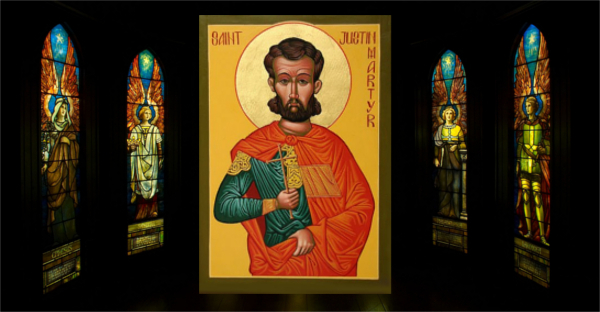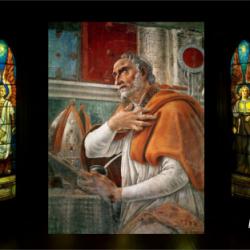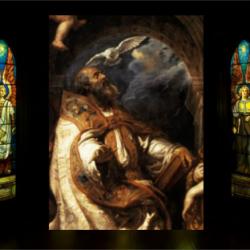 Writing to the pagan emperor Antoninus Pius, St. Justin Martyr explains how Christians are supposed to behave. We please God, he says, when we imitate God’s virtues and act in a way worthy of our marvelous creation.
Writing to the pagan emperor Antoninus Pius, St. Justin Martyr explains how Christians are supposed to behave. We please God, he says, when we imitate God’s virtues and act in a way worthy of our marvelous creation.
Our tradition tells us that God does not need the material offerings humans can give him, since he himself is the one who provides everything. And we have been taught, and are convinced, and believe, that he accepts only those who imitate his own excellences—temperance, justice, philanthropy, and all the virtues unique to the God who is called by no proper name.
We have been taught that, in the beginning, he created everything out of unformed matter out of his goodness, for the sake of humanity. And if humans show themselves worthy of this design by their works, then they are deemed worthy (our tradition tells us) of reigning in company with him, being freed from decay and suffering.
For just as he created us in the beginning when we did not exist, so we consider that those who choose what is pleasing to him are, because of their choice, deemed worthy of eternal life and fellowship with him. For our coming into being in the beginning was not in our power. And so that we may use the intelligence he himself gave us to choose to follow the things that please him, he persuades us and leads us to faith.
–St. Justin Martyr, First Apology, 10
IN GOD’S PRESENCE, CONSIDER . . .
When I look back at everything I’ve done so far today, do I seem to be doing what God meant me to do when he created me?
CLOSING PRAYER
Lord, though I am a sinful and unworthy servant, in your goodness and mercy blot out my sins, so that I may serve your holy name.
Remember to subscribe to my feed so you will not miss a day! This recurring feature at The Catholic Blogger is possible through the cooperation of author Mike Aquilina and publisher Saint Benedict Press. To get your own copy of this book, click below.












